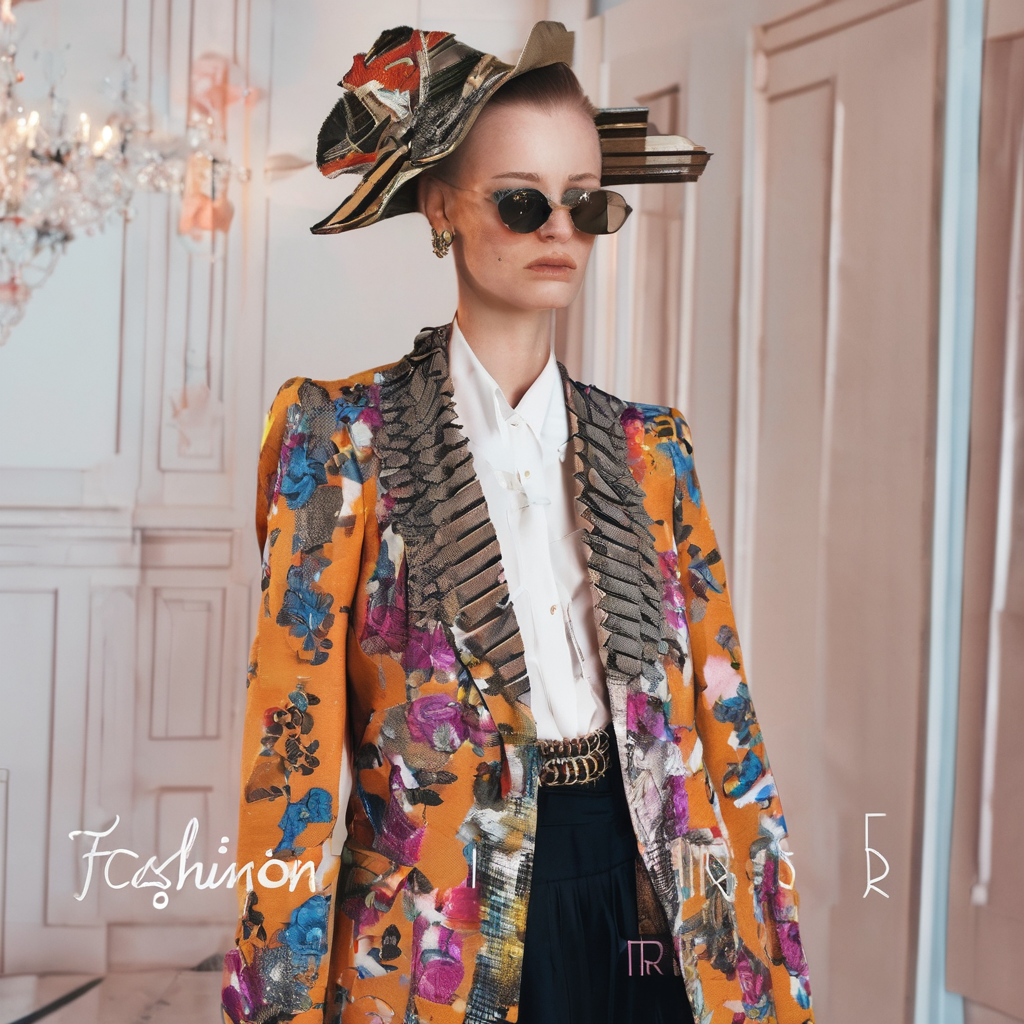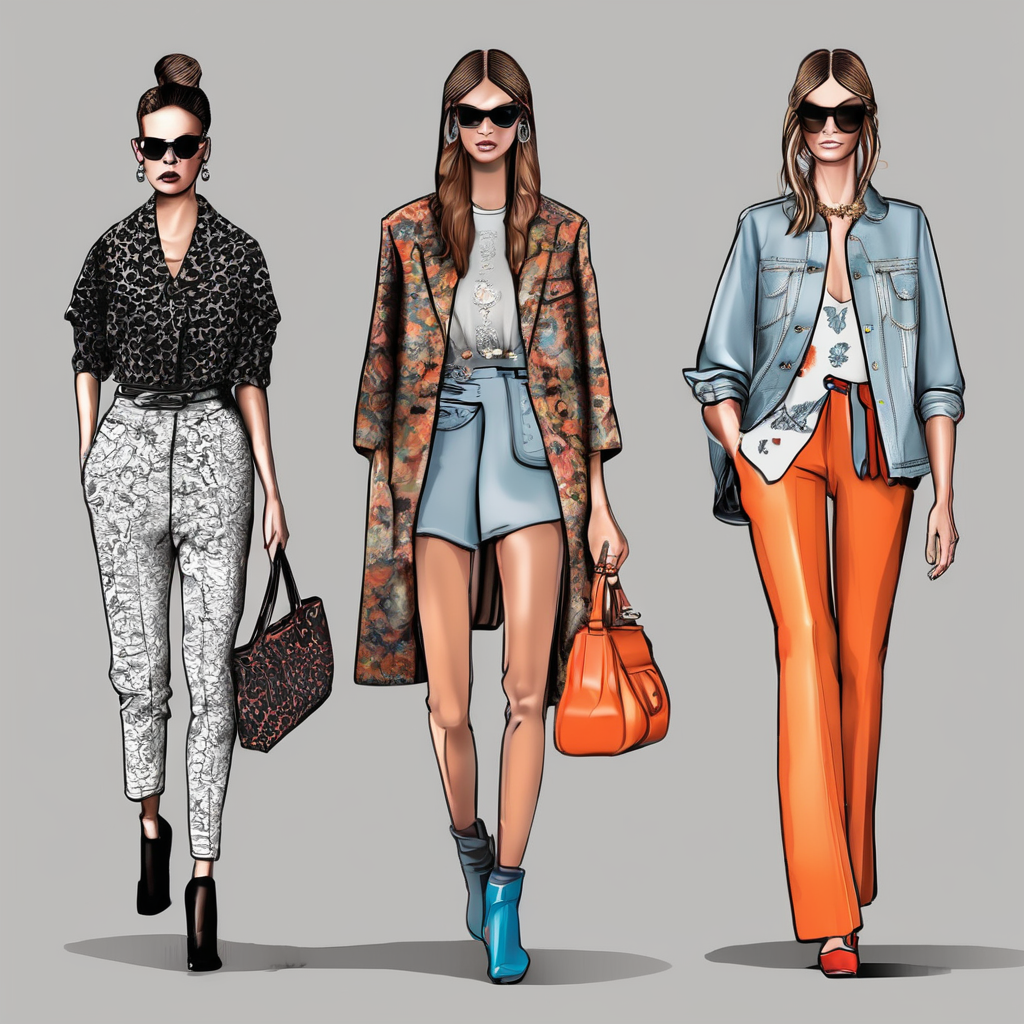Fashion Trends
-
Vocabulary A
-
Let's start by checking your prior vocabulary on the subject.
Click on the activity Prior Knowledge.נתחיל בבדיקת אוצר המילים שיש לך בנושא.
יש להקליק על הפעילות Prior Knowledge. -
Mandatory task
To test your familiarity with the first word cluster on the topic, do the following activity.
משימת חובה
לבדיקת היכרותכם עם מקבץ המילים הראשון בנושא, בצעו את הפעילות הבאה.
-
-
Perform the following activities. It is recommended to complete at least two different activities, according to your choice.
לפניכם מספר פעילויות. מומלץ לבצע לפחות שתי פעילויות שונות, על פי בחירתכם.
-
-
-
-
Dialogue: To Buy or Not to Buy Expensive Brands
Tom: Hey, Alex! I've been thinking about getting some new clothing. Have you seen the latest trends in the media?
Alex: Yeah, I have. There's a lot of pressure to buy brand name stuff. But do you think it's worth it?
Tom: I'm not sure. I mean, those commercials make everything look so good. It's easy to be under the impression that we need to buy expensive brands to fit in.
Alex: I get that. But isn't it just commerce trying to make us spend more money?
Tom: True. They use models to express a certain lifestyle, and it can be really attractive. But we should think about how much we actually need those things.
Alex: Exactly. It's important to consume wisely. Sometimes, I feel the FOMO when I see everyone else with the latest stuff. But popularity doesn't mean we have to follow blindly.
Tom: You're right. Maybe we can find some stylish options that aren't as expensive. It's about finding a balance.
Alex: Totally. We can still look good without spending too much. Let's go shopping this weekend and see what we can find!

-
-
Fashion Trends for Teenagers (advanced)
In today's bustling world of commerce, fashion trends for teenagers are constantly evolving. Fueled by the commercial strength of the fashion industry and amplified by the media, teenagers use clothing as a powerful means to express their individuality. Whether it's wearing the latest designs from a popular brand or showcasing their creativity with brand new looks, teenagers eagerly consume fashion in all its forms.
However, amidst the excitement of staying on-trend, there are negative aspects to consider. The pressure to keep up with ever-changing styles can lead to excessive consumption and contribute to unsustainable practices within the industry. Teenagers may feel compelled to constantly update their wardrobe to avoid feeling left out or under the impression that they're not keeping up with their peers.
Moreover, the widespread influence of social media can worsen feelings of inadequacy and FOMO (fear of missing out) among teenagers. The constant stream of images showcasing idealized beauty standards and flawless fashion can lead to unrealistic expectations and low self-esteem.
Despite these challenges, many teenagers remain enthusiastic about the latest trends, eagerly consuming fashion content and seeking to impress their peers with their unique sense of style. With such enthusiasm, teenagers continue to attract attention with their ever-evolving fashion choices.

-
-
Mandatory task
Answer all the tasks in the exam before you.
משימת חובה
ענו על כל המשימות בבוחן שלפניכם.
-
-
Vocabulary B
-
Mandatory task
To test your familiarity with the first word cluster on the topic, do the following activity.
משימת חובה
לבדיקת היכרותכם עם מקבץ המילים הראשון בנושא, בצעו את הפעילות הבאה.
-
-
Fast Fashion
Fast fashion, a term capturing the rapid turnover of clothing trends, has ancient roots in human culture's desire to adapt and create. This term refers to the quick production of inexpensive clothing to keep up with ever-changing fashion trends. Imagine seeing a new trend on social media and being able to buy a cheap version of it in stores within a matter of weeks - that's fast fashion.
However, its modern manifestation faces considerable criticism. While it defends affordability and quick turnarounds, it encounters backlash for its environmental impact and labor practices. Many fast fashion brands use cheap materials and rely on factories with poor working conditions, harming both people and the planet.
Yet, in this fashion landscape, determined voices arise, heroines of sustainability and equality. They challenge the gender norms perpetuated by fast fashion, advocating for a more inclusive and mindful approach. Feminism intersects with fashion as a powerful force, aiming to redefine the industry's power dynamics.
Teenagers, with their growing awareness, have the superpower to reshape this narrative, fostering a culture of conscious consumption and equality in fashion. By making informed choices about where they shop and what they support, teenagers can become powerful agents of change in the fashion industry and beyond.
-
Perform the following activities. It is recommended to complete at least two different activities, according to your choice.
לפניכם מספר פעילויות. מומלץ לבצע לפחות שתי פעילויות שונות, על פי בחירתכם.
-
-
-
-
Understanding Fast Fashion Brands (Zara and H&M)
- Fast fashion allows brands like Zara to introduce around 12,000 new designs each year, quickly adapting to changing trends. This rapid turnover is essential for capturing consumer interest.
- H&M offers more than 3 billion pieces of clothing annually, making a significant impact on the fashion industry and influencing global culture.
- Zara's production cycle from design to store can be as short as 15 days, showcasing their determination to stay current and capture the latest fashion trends rapidly.
- Both Zara and H&M have faced scrutiny over child labor practices in their supply chains, which has led to widespread social discussions and demands for better equality.
- H&M has a goal to use only recycled or sustainable materials by 2030, aiming to reduce its environmental impact and promote a more eco-friendly industry.
- Zara produces smaller quantities of each design, creating a sense of exclusivity and urgency to buy, which drives consumer demand and influences their buying preferences.
- H&M frequently changes its collections, offering new items almost every week. This strategy showcases their ability to encounter and adapt to changing fashion trends.
- Zara’s parent company, Inditex, employs over 150,000 people worldwide, highlighting the power of large fashion conglomerates and their role in the global economy.
- H&M has been working on improving labor conditions and has pledged to ensure fair wages and equality for all workers, responding to social demands and ethical standards.
- Zara's rapid production and turnover allow it to quickly react to the latest fashion trends and consumer demands, defending its position as a market leader in the fast fashion sector.
-
-
Mandatory task
Answer all the tasks in the exam before you.
משימת חובה
ענו על כל המשימות בבוחן שלפניכם.
-